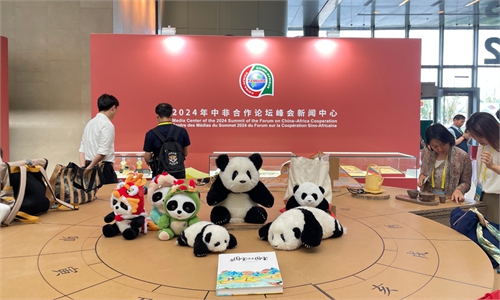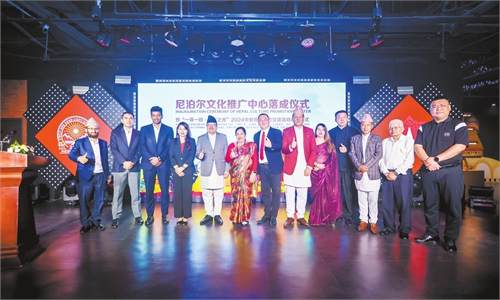ARTS / CULTURE & LEISURE
Generation Z connect China and the world digitally: report

Illustration: Chen Xia
Cultural exchanges between China and other countries in 2023 showed a rapid recovery and positive trajectory, thanks to a focus on balancing security and development while prioritizing cooperation and mutual benefit, says the Report on China's Cultural Exchanges with the World released at the Beijing Culture Forum on Thursday.
Nowadays, Generation Z are serving as the new main force to push forward the cultural exchanges between China and other countries, according to the report, which details the result of research on China's cultural exchanges with the world in 2023.
Global youths are increasingly engaging with China's rich culture as rapidly developing digital technology drives innovations in content, models, and formats. This creates new opportunities for global Gen Z to foster peace and friendship through mutual understanding, travel, and cultural exchange.
American vlogger Paul Mike Ashton likely never imagined his video about traveling in China would go viral, popularizing the "city or not city" meme. Known as "Hug Hug Bear" or Bao Bao Xiong in Chinese, Ashton captured viral attention with a vlog during a visit to the Great Wall in Beijing with his sister, garnering more than 10 million views on Douyin, China's version of TikTok.
The hashtag "China Travel," where people share their experiences of visiting the country, has become a global sensation, attracting millions of international tourists.
In 2023, a series of immigration and entry-exit facilitation policies were introduced for foreign travelers, setting off an upsurge of foreign tourists visiting China and enhancing friendship and mutual trust between Chinese and foreign people. The number of inbound and outbound tourists exceeded 190 million, and Chinese tourists' overseas consumption reached $196.5 billion in the year 2023.
The 2023 China International Tourism Mart has attracted tourism promotion agencies and related enterprises from more than 70 countries and regions to participate in the exhibition, and the intangible cultural heritage experience has been widely welcomed.
China's rapidly advancing digital technologies like virtual reality (VR) and augmented reality enable people worldwide to experience foreign cultures through immersive, panoramic experiences.
Perceptions of culture and communication methods are evolving swiftly. China's new exhibitions including "Panorama Forbidden City" digital virtual experience and the "Dunhuang Discovery" VR immersive exhibition bring immersive cultural experiences to overseas people.
In his speech at the Beijing Culture Forum, Xie Chuntao, a vice president of the Party School of the CPC Central Committee (National Academy of Governance), mentioned the continuous popular game Black Myth: Wukong.
He noted, "Many foreign players started studying the novel Journey to the West to better understand the game, which reflects the growing global appeal of Chinese culture."
Online games, TV series, and literature are becoming the primary vehicles for Chinese culture to reach global audiences. Behind this is the result of Generation Z becoming the new main force in cultural exchanges between China and foreign countries.
The growing use of social media platforms like Facebook, YouTube, and TikTok promotes instant information sharing and fosters mutual respect and cultural understanding.
Generation Z excels at leveraging new technologies and media. They create cross-cultural art works, launch online cultural activities, and participate in international volunteer projects, which help the world see hot buzz words like "city or not city" and "China Travel."
The bridge that connects China and the world has also become wider and wilder as the people-to-people contact becomes the new trend, strengthening the bonds of friendship between nations.
The author is a reporter with the Global Times. life@globaltimes.com.cn




